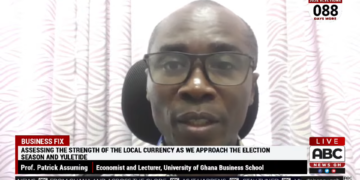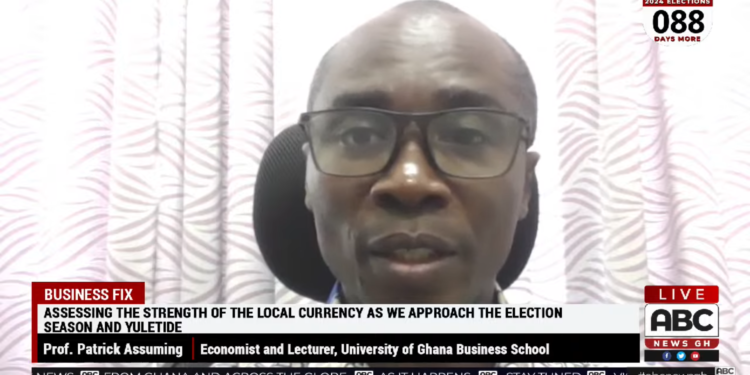Prof. Patrick Asuming, an economist and lecturer at the University of Ghana Business School, has highlighted the pressing need for a shift from import reliance to bolstering domestic manufacturing.
During an appearance on ABC in the Morning, Prof. Asuming argued that addressing the cedi’s persistent depreciation requires more than just short-term measures.
“At the moment, our best option is a longer term fix. But sometimes we can get some short term fixes mostly in the form of inflows,” he stated.
Professor Asuming highlighted that focusing on reducing imports, especially for food items that could be produced locally, is essential for stabilizing the cedi.
Expressing a cautious outlook on the future of the cedi, Professor Asuming remarked, “So I don’t think we should be expecting that the cedi is going to gain. We just have to hope that we don’t lose as much as quickly at some point of this year.”
His comments come as the nation faces mounting pressure on its currency, exacerbated by the strength of the dollar and Ghana’s heavy reliance on imports.
Assessing the local currency’s strength amidst the approaching election season and holiday period, Professor Asuming described expectations of cedi appreciation as “a little misplaced.”
He pointed out that while the dollar has been strong globally, Ghana’s specific economic vulnerabilities lead to greater currency pressure. “It’s a matter of how quickly it will lose,” he noted.
Admitting that the dollar has remained robust this year, Professor Asuming acknowledged that this global trend has affected many countries, including Ghana.
However, the country’s heavy import dependency has intensified the impact on its currency.
The economist concluded that while an immediate gain in the cedi seems unlikely, efforts should focus on mitigating further rapid losses.

































